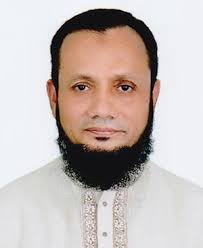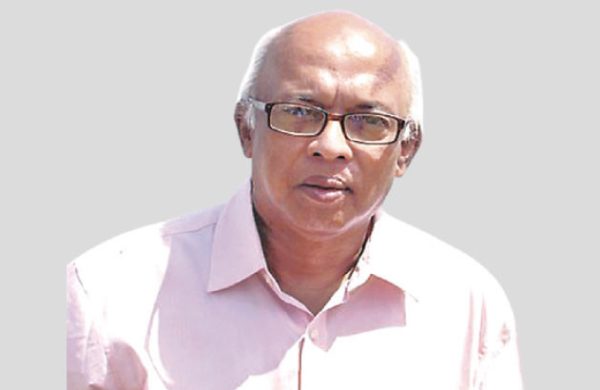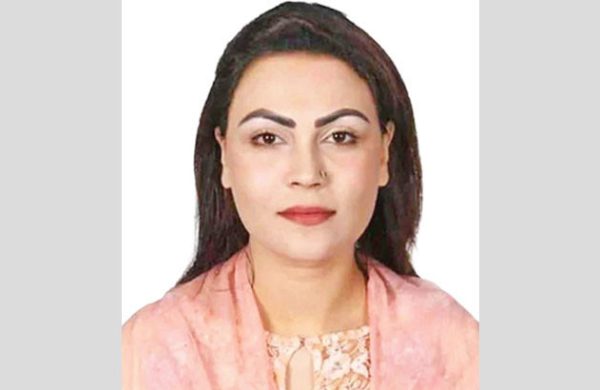Sir culture from public services needed elimination
- Update Time : Tuesday, June 4, 2024

—-MIR MOSHARREF HOSSAIN PAKBIR—-
In a democratic society, the relationship between public servants and the citizenry is fundamental to the effective functioning of governance. In Bangladesh, as in any democracy, the principle that the people are the ultimate employers of public servants must be deeply ingrained in the public service culture. This principle underlines the democratic ethos that public servants are accountable to the people and must serve them with utmost respect, integrity, and dedication. Considering the prevailing culture or system, it is high time that the public servants in Bangladesh practice this principle to foster a respectful and service-oriented public administration.
All around Bangladesh, there is a significant power imbalance between the public servants and the people, where public servants including public sector employees and well as public leaders exercise supreme powers. It is easily observant as the public needs to address all of them as Sir or Madam whenever they visit the public servants for a service. The rude and powerful behavior of the public servants is very common and it is almost impossible to get a job done without being the victim of throughout corruption at any public offices. But the perfect scenario should compel the public servants to attend any citizen with utmost respect while delivering the service as people are actually their employers and in a democracy, people are the owner of supreme power.
In a democracy, sovereignty resides with the people. This foundational principle is enshrined in the Constitution of Bangladesh, which declares that all power belongs to the people. Public servants, whether they are elected officials or career civil servants, derive their authority from the people and are entrusted with the responsibility to serve the public good. The father of the nation Bangabandu Sheikh Mujibur Rahman also once said that, government employees needed to change their mentality, as they were not rulers but servants.
Public trust is the cornerstone of effective governance. When public servants view the people as their employers, they are more likely to act transparently, be accountable, and uphold the highest standards of ethics. This fosters a culture of trust where citizens believe in the legitimacy and fairness of public institutions. Accountability mechanisms, such as regular audits, public consultations, and performance reviews, are essential in ensuring that public servants adhere to these principles and remain answerable to the people.
One of the significant challenges in Bangladesh is the entrenched bureaucratic culture, which often prioritizes hierarchy and authority over service. Bureaucratic red tape, slow decision-making processes, and a lack of proactive service can erode public trust and diminish the effectiveness of governance. Corruption remains a pervasive issue in Bangladesh, undermining the principles of democracy and accountability. Corruption not only deprives citizens of their rightful services and resources but also perpetuates inequality and injustice.
Public perception of government institutions in Bangladesh is often marred by skepticism and mistrust. This is partly due to experiences of poor service delivery, unresponsiveness, and corruption.
To bridge this gap, public servants must actively engage with citizens to listen to their concerns and work collaboratively to address issues. When public servants approach their duties with respect, they are more likely to be attentive to the needs and concerns of the people. Respectful interactions also reduce conflicts and complaints, creating a more harmonious and efficient service environment. When public servants treat all individuals with dignity, regardless of their background or status, it reinforces the democratic principle of equality.
In our country, even a high-class citizen is often shaky to interact with a public servant due to a serious power gap. Even a junior most public servant does not respect a prominent citizen and we do not really know the source of their power. First and foremost, the public servants of Bangladesh need to change their mental setup. They must believe at their core that they are on the chair to serve the people. This change must be portrayed in their activities as they must address all people with respect, show physical gestures like getting up from the chair when a citizen visits his or her office, offer full and quick assistance etc. If the attitude does not change at the very core, then it is impossible to implement the true concept of public service in Bangladesh.
Continuous training and professional development are essential for cultivating a culture of respect within the public service. Public servants should be equipped with the skills and knowledge to engage with citizens respectfully and effectively. Training programs should focus on customer service, communication, conflict resolution, and ethical standards. Institutional reforms are necessary to create an environment that promotes respect and accountability. Establishing clear codes of conduct and ethical guidelines for public servants can provide a framework for respectful behavior.
Engaging citizens in governance processes is crucial for fostering mutual respect and understanding. Public servants should actively seek citizen feedback on services and policies, using this input to improve service delivery. Leadership plays a pivotal role in shaping the culture of public service. Leaders within the public sector must exemplify the principles of respect and accountability, setting a standard for others to follow. Recognizing and rewarding public servants who demonstrate exemplary behavior can also motivate others to adopt similar practices.
Examining international best practices can provide valuable insights for Bangladesh. For instance, the “Batho Pele” (People First) principles in South Africa emphasize respect and service excellence in the public sector. In New Zealand, the State Services Commission promotes a culture of integrity and respect through its “Spirit of Service” awards, recognizing public servants who demonstrate outstanding dedication to public service. Such initiatives can inspire public servants in Bangladesh to strive for excellence and uphold the values of respect and accountability.
There are also positive examples within Bangladesh that can be scaled and replicated. Some local government units have implemented community engagement programs, where public servants regularly interact with citizens to understand their needs and address their concerns. Moreover, there are still few officers, who show due respect to the public starting from the first meeting with the citizen to the exit of the citizen. But such officers are very few in numbers. Collaborations between public servants and these organizations can enhance efforts to foster a culture of respect and service.
Our political leaders are often engaged in debates over democracy especially during the election periods. Democracy was defined as a Government of the people, by the people and for the people by Abraham Lincoln. But we are far away from that concept as we only practice Election Day democracy, which is actually a tool to fool people and have no meaning for the populace. Such practices will never ensure the right and satisfaction of the people and will always remain as a hindrance towards the actual development of Bangladesh as all developed countries around the world ensures that public servants remain accountable to the people and offer the greatest possible service to the people while portraying utmost respect.
By embedding the principles of respect and accountability in the public service culture, Bangladesh can strengthen its democratic foundations and ensure that its government truly serves the people. This transformation is vital for achieving sustainable development, social justice, and a prosperous future for all citizens. As a starting point, we hope, the public servants will decline the address Sir or Madam from the people from now on and will start treating every citizen with utmost respect. If required, a law should be passed on the behavior of the public servants immediately to drive this change of attitude.
The public servants must embed the concept of showing respect to the citizens at their core. While meeting a citizen, they must convey salam or other greetings as applicable. Then they will allow the citizens to sit properly and will resolve their problems within quickest possible time. Then they will humbly guide the citizens exit with providing proper appointment to the citizens if further visits are required. The whole experience must be a pleasant one. As a reward, the public servants, who portray the most respectful attitude towards the citizens, should be considered for promotions as well as awards, not those who are involved in heavy corruption and portray ill behavior to the citizens. If public servants are bound to show respect to the citizens, they cannot easily become corrupt or cannot misbehave with the citizens.
The journey towards a respectful and service-oriented public administration may be challenging, but it is a path that holds immense promise for the nations progress and the well-being of its people. At the end of the day, people are the king in democracy and only that ideology can make Bangladesh a truly developed country, envisioned by the father of the nation Bangabandhu Sheikh Mujibur Rahman and his capable eldest daughter Prime Minister Sheikh Hasina.
(The writer is Chief Editor at Mohammadi News Agency (MNA) and Editor at Kishore Bangla)



















